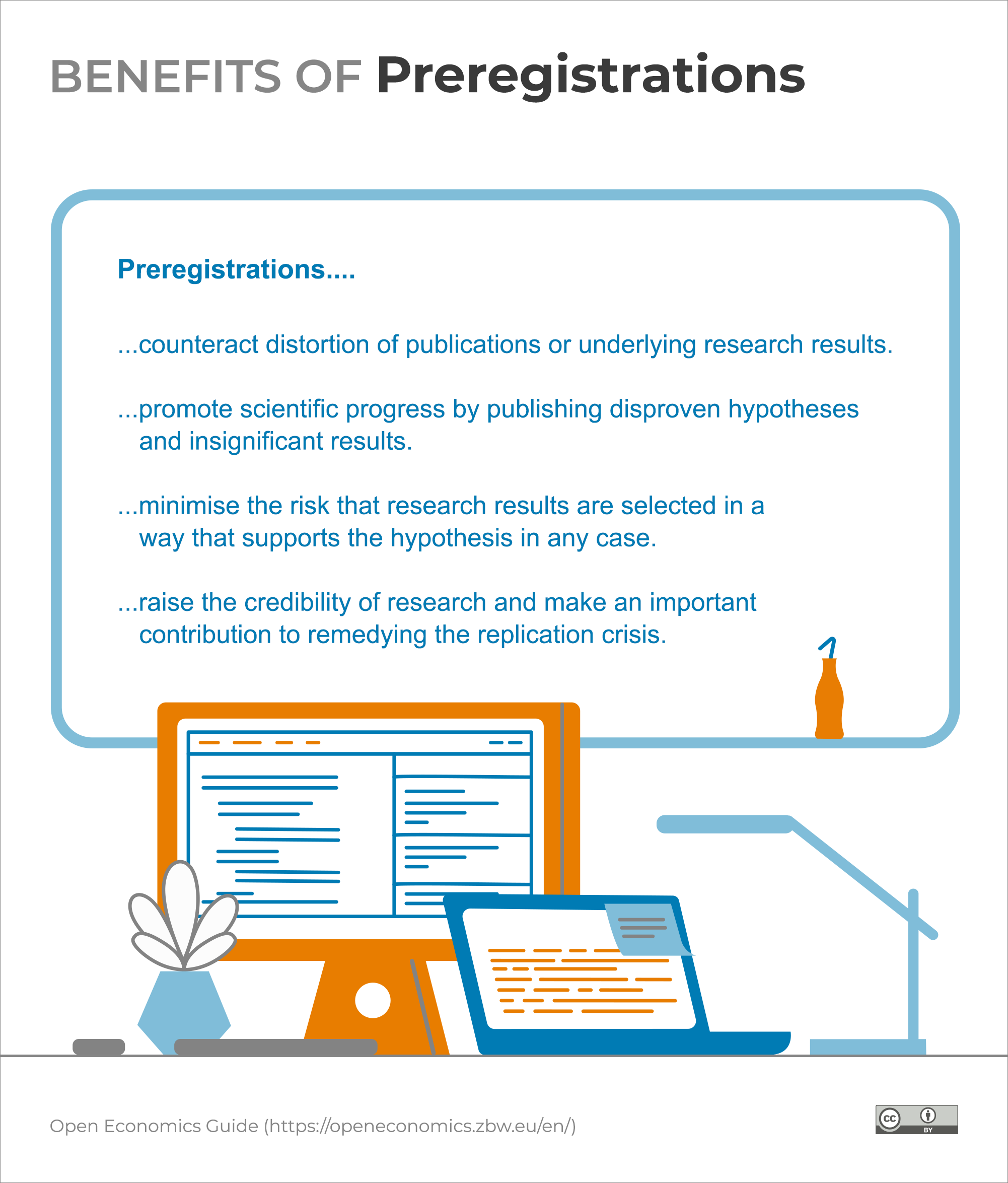Benefits of Pre-Registration
In pre-registration, researchers communicate important information about their study to a public register, before they begin the study. This includes the research fundamentals, hypotheses, design and analysis strategy. Pre-registration is intended to prevent the distortion of a publication or its fundamental research results from occurring. It is of great benefit to scientific progress if disproven hypotheses and insignificant results are also published.
If researchers announce their hypotheses and research design in advance, this minimises the risk that research results are interpreted or selected in a way that supports the hypothesis, no matter what the result of the study is. The public pre-registration of the experiment planning and the analysis plan before data collection is an effective way to minimise distortions and raise credibility. Pre-registration thereby makes an important contribution to remedying the replication crisis. Pre-registration may not always be appropriate for all kinds of research or publications, however. A few specialist journals already demand registered reports and this could become common practice for research publishing.
In pre-registration, you register your intentions regarding data collection and analysis, and thereby clearly document your plans in advance. In principle, the format of your pre-registration is up to you, as long as it clearly describes your plans. A pre-registration does not need to be long, but every additional detail helps you to prove that you have followed a confirmatory research strategy. As the pre-registration documentation is written similar in form to a methodology paragraph, the additional effort for the pre-registration is often minimal. In practice, templates with pre-defined questions and requests (in contrast to an open, narrative pre-registration) help to guide you through the process and ensure that all critical questions are addressed.
